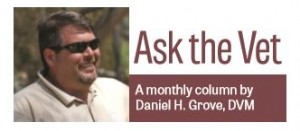 Fall is a great time of year. Temperatures start to decrease, the leaves start to change, and the major holidays are right around the corner. Before life gets away from you with family, don’t forget about your horses. In the fall, there are some routine things that you should be looking at.
Fall is a great time of year. Temperatures start to decrease, the leaves start to change, and the major holidays are right around the corner. Before life gets away from you with family, don’t forget about your horses. In the fall, there are some routine things that you should be looking at.
This time of year, showing is usually still going strong. In order to keep your athlete ready for the task, make sure you are up to date on vaccines and deworming. In the spring, most people get their major vaccines done. Influenza and Rhinopneumonitis vaccines work well, but not for very long. It is estimated that the antibody levels they stimulate subside in seven to eight months. Therefore, it is usually recommended to give a six-month booster in the fall for these two ailments. This vaccine is typically much cheaper than the ones in the spring. There are intramuscular and intranasal products available. Discuss with your veterinarian what will work best for you.
Deworming still needs to be done even if you are getting fecal testing done. While on the program with fecal testing, it is still recommended to deworm twice a year with either an ivermectin or moxidectin product. Fecal testing is good for certain parasites, but others are routinely missed on the routine fecal float. Since the development and use of ivermectin, a serious and potentially fatal parasitic disease is almost unheard of today. The parasite is Stongylus vulgaris. This parasite invades and damages one of the major blood vessels feeding the digestive tract. If left unchecked, it can cause severe colic and death. To prevent its resurgence, it is recommended to be proactive and treat for it.
Fall is a great time to get your horses teeth checked. Proper mastication (chewing) of your horse’s food is necessary to get the most out of it. The grinding of the feed exposes more surface area of the feed to enzymes and microbes in the digestive tract. Without this, less of the feed will be digested and less nutrients absorbed. This is especially important in older horses that may not absorb their nutrients as well. You want to give them every chance possible to utilize that expensive food.
Another important thing that should be checked and late fall is usually good for it, is Cushing’s disease. If you know your horse has it and are treating, making sure your horse is controlled at the dose you are giving is important to do at least once a year. If you or your veterinarian are suspicious that your horse has it, get your horse tested. Their quality of life can be greatly improved on the medication.
These are a few things you can consider important for your horse here in the fall. Discuss with your veterinarian the best plan of action for your individual horse. Each case is different, so a custom plan is best developed with you and your veterinarian’s input. Happy Halloween!
Dan
Leave a Comment
All fields must be filled in to leave a message.